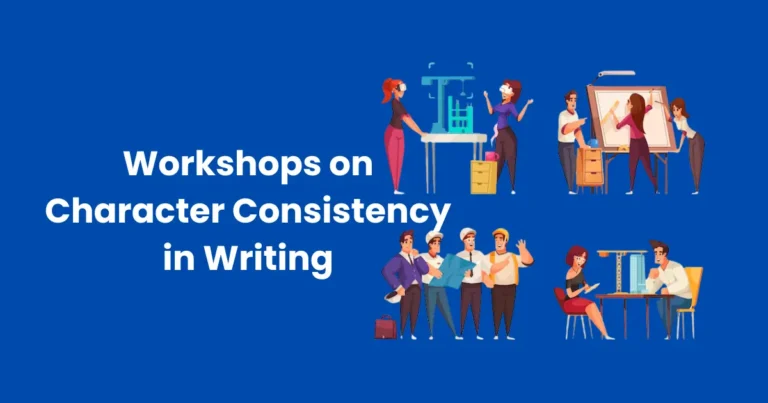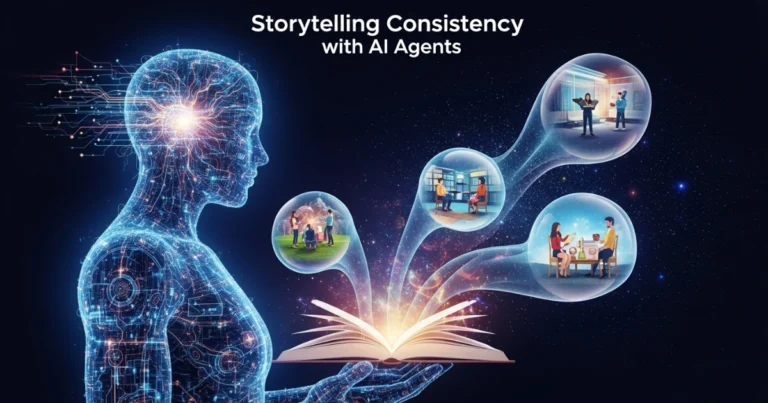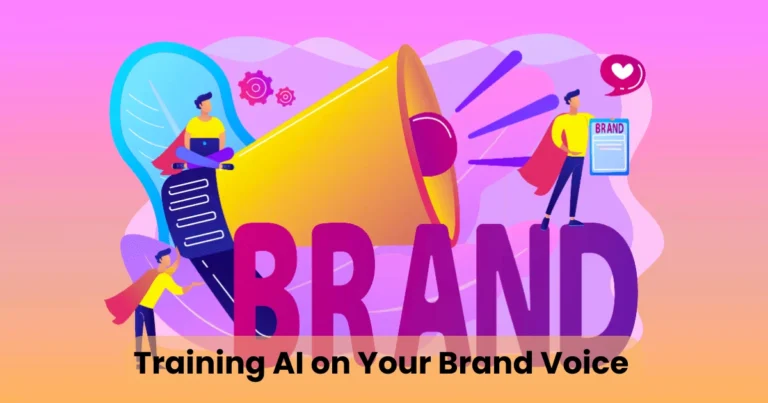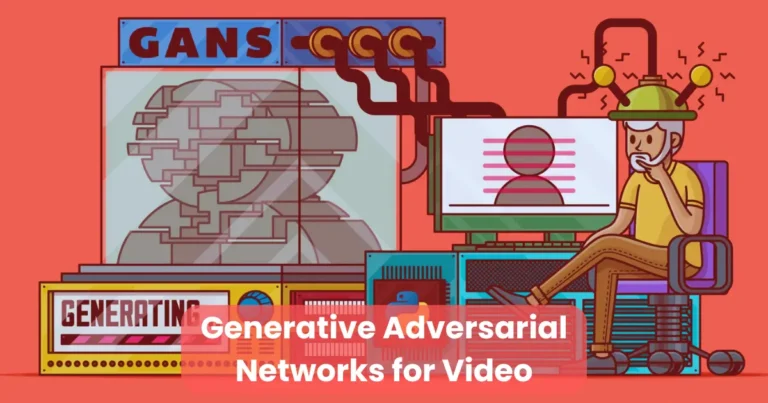AI in Digital Storytelling: A Complete Guide

Contents
In the ever-evolving digital landscape, AI in digital storytelling has revolutionized the way narratives are crafted, delivered, and consumed. By integrating artificial intelligence into storytelling, content creators can generate engaging, dynamic, and personalized stories that captivate audiences like never before. Over the years, digital storytelling has transformed from simple text-based narratives into immersive experiences powered by AI-driven tools.
The Evolution of Digital Storytelling
Storytelling has always been an essential part of human communication. From oral traditions and written manuscripts to radio, television, and digital media, the art of storytelling has continuously evolved. As technology advances, AI in digital storytelling is pushing the boundaries of creativity, making stories more interactive and data-driven.
The Role of AI in Digital Storytelling
Artificial intelligence enhances storytelling by automating content creation, analyzing audience preferences, and generating data-driven narratives. Through machine learning and natural language processing, AI-powered tools craft compelling stories tailored to individual preferences. By leveraging AI, content creators can explore new dimensions of storytelling that were once impossible to achieve manually.
Understanding AI in Digital Storytelling

What is AI in Digital Storytelling?
AI in digital storytelling refers to the use of artificial intelligence technologies to create, optimize, and personalize stories. By leveraging machine learning, natural language processing (NLP), and deep learning, AI can generate compelling narratives, develop characters, and tailor content based on audience preferences. Whether used in films, video games, interactive media, or marketing campaigns, AI-driven storytelling enhances engagement and creativity.
Unlike traditional storytelling, where human writers manually craft every aspect of a narrative, AI can analyze large datasets, predict audience reactions, and generate dynamic storylines. This capability enables the creation of personalized, immersive experiences that evolve based on user interaction.
Key Technologies Powering AI in Storytelling
Several cutting-edge AI technologies contribute to the transformation of digital storytelling:
1. Natural Language Processing (NLP)
NLP enables AI to understand, interpret, and generate human-like text. It allows machines to create realistic dialogues, compelling narratives, and even interactive storytelling experiences. Platforms like OpenAI’s ChatGPT and DeepSeek AI use NLP to craft engaging content.
2. Machine Learning (ML)
Machine learning helps AI analyze patterns in audience behavior and tailor stories accordingly. By learning from past interactions, AI can adjust plotlines, character arcs, and even the pacing of a story to maximize engagement.
3. Deep Learning
Deep learning models, such as neural networks, enable AI to mimic human creativity by generating unique and emotionally resonant content. This technology is used in AI-generated art, music, and scriptwriting.
4. Computer Vision
In visual storytelling, AI-powered computer vision assists in scene generation, facial recognition for character animation, and real-time video editing. This technology enhances the production quality of AI-generated content.
5. Speech and Voice Synthesis
Advanced AI voice synthesis tools, such as text-to-speech (TTS) models, generate realistic AI-driven narration and character dialogues. This is particularly useful in audiobooks, virtual assistants, and animated storytelling.
By integrating these technologies, AI in digital storytelling is reshaping how stories are told, making them more adaptive, engaging, and interactive than ever before.
How AI is Transforming Digital Storytelling
AI in digital storytelling is revolutionizing the way narratives are created, delivered, and consumed. By automating content generation, enhancing audience interaction, and personalizing storytelling, AI is reshaping the storytelling landscape across various industries, including entertainment, marketing, and gaming.

Automated Content Creation
AI-powered tools enable the automatic generation of scripts, articles, and dialogues based on predefined parameters. Platforms like OpenAI’s ChatGPT and DeepSeek AI assist writers by creating compelling storylines, character interactions, and plot progressions with minimal human intervention.
- Scriptwriting: AI-driven software generates entire scripts for movies, games, and TV shows, reducing the time required for content production.
- Blog and Article Generation: AI tools produce high-quality, SEO-optimized articles tailored to target audiences.
- Social Media Storytelling: AI creates engaging and personalized social media content to improve user engagement.
AI-Driven Character Development
AI enhances character development by analyzing personality traits, emotions, and behavioral patterns. Using machine learning algorithms, AI can create lifelike and relatable characters that evolve based on audience interactions.
- Character Customization: AI dynamically adjusts character traits based on audience preferences in video games and interactive storytelling.
- Dialogue Generation: AI-powered chatbots and voice synthesis tools enable characters to respond intelligently to user input.
- Emotionally Intelligent AI: AI can analyze emotional cues to generate believable and immersive dialogues in films and video games.
Enhancing Audience Engagement with AI
AI transforms digital storytelling by making it more interactive and adaptive, keeping audiences engaged throughout the experience.
- Personalized Storytelling: AI adapts stories in real-time based on user choices, making narratives unique for each viewer.
- AI-Generated Recommendations: Streaming platforms use AI to suggest personalized content based on viewing history and preferences.
- Interactive Narratives: AI-driven decision trees allow audiences to influence the direction of a story, creating multiple possible endings.
By leveraging AI, digital storytelling is becoming more dynamic, immersive, and audience-centric than ever before. This transformation is not only enhancing creativity but also redefining the future of storytelling across industries.
Benefits of AI in Digital Storytelling
The integration of AI in digital storytelling has introduced numerous advantages that enhance creativity, efficiency, and audience engagement. From personalized narratives to cost-effective content creation, AI-driven storytelling is transforming how stories are developed and consumed.

1. Personalization and Adaptive Narratives
One of the most significant benefits of AI in digital storytelling is personalized content creation. AI-driven tools analyze user behavior and preferences to adjust narratives in real time, making storytelling more engaging and relevant.
- Interactive Storylines: AI customizes stories based on audience input, allowing users to shape the plot.
- Dynamic Content Adjustment: AI modifies dialogues, settings, and endings according to user engagement.
- Enhanced User Experience: Tailored storytelling increases emotional connection and audience retention.
2. Efficiency and Cost Reduction
AI significantly reduces the time and cost required for content creation by automating repetitive tasks. This allows storytellers, filmmakers, and content creators to focus more on creativity while AI handles technical aspects.
- Automated Scriptwriting: AI generates scripts and dialogues within minutes.
- Reduced Production Costs: AI-powered animation, voice synthesis, and video editing lower production expenses.
- Faster Content Generation: AI accelerates the creative process, enabling quicker content delivery.
3. Data-Driven Insights for Story Enhancement
AI analyzes vast amounts of audience data to provide valuable insights into storytelling trends, preferences, and engagement levels. These insights help creators optimize their narratives for maximum impact.
- Audience Behavior Analysis: AI tracks how audiences interact with different story elements.
- Content Performance Optimization: AI recommends improvements based on real-time engagement metrics.
- Predictive Storytelling: AI anticipates future storytelling trends by analyzing past data.
4. Improved Accessibility and Inclusivity
AI enhances accessibility in storytelling, making content available to diverse audiences worldwide.
- AI-Powered Translations: AI translates stories into multiple languages for a global audience.
- Voice Synthesis for Audiobooks and Films: AI-generated voiceovers provide narration for visually impaired users.
- Adaptive Text and Speech Recognition: AI enhances accessibility by offering real-time subtitles and voice interactions.
By leveraging AI in digital storytelling, content creators can produce high-quality, personalized, and cost-effective narratives while ensuring that their stories resonate with global audiences. As AI technology advances, its benefits in storytelling will continue to expand, offering even more immersive and innovative storytelling experiences.
Challenges and Ethical Considerations
While AI in digital storytelling offers numerous advantages, it also presents significant challenges and ethical concerns. These issues must be carefully addressed to ensure that AI-driven narratives remain authentic, inclusive, and responsible.
1. Creativity vs. Automation
One of the biggest concerns regarding AI in digital storytelling is the potential loss of human creativity.
- Lack of Originality: AI-generated content is based on pre-existing data, which may limit true innovation.
- Over-Reliance on AI: Excessive dependence on AI could reduce human involvement in creative writing and storytelling.
- Standardized Storytelling: AI-generated narratives might become predictable and formulaic, lacking the emotional depth of human-created stories.
2. Ethical AI Use in Storytelling
The ethical implications of AI-driven storytelling raise concerns about misinformation, authenticity, and content manipulation.
- Deepfake Technology: AI can create highly realistic yet false narratives, leading to misinformation and ethical dilemmas.
- Content Authenticity: AI-generated stories may blur the line between fact and fiction, causing potential trust issues.
- Manipulation and Propaganda: AI-powered storytelling could be used to spread biased or misleading information.
3. Bias and Representation in AI Narratives
AI models learn from existing datasets, which may contain biases related to gender, race, culture, and social issues. This can result in storytelling that unintentionally reinforces stereotypes.
- Unintentional Bias: AI models may reflect the biases present in their training data, affecting character development and plot representation.
- Lack of Cultural Sensitivity: AI-generated narratives might not accurately represent diverse perspectives.
- Limited Ethical Oversight: Ensuring fair and inclusive storytelling requires human oversight and intervention.
4. Copyright and Intellectual Property Issues
As AI-generated content becomes more common, questions arise about ownership and copyright.
- Who Owns AI-Generated Stories? Legal frameworks are still evolving regarding whether AI-generated content is owned by the developer, the AI system, or the user.
- Plagiarism Risks: AI models may inadvertently generate content similar to existing works, raising concerns about originality.
- Fair Compensation for Human Creators: The rise of AI-generated storytelling may impact job opportunities for writers, artists, and filmmakers.
5. Emotional Disconnect in AI-Generated Content
Despite AI’s ability to create realistic narratives, it lacks true human emotions and experiences.
- Limited Emotional Depth: AI-generated stories might fail to capture complex human emotions and nuances.
- Lack of Personal Touch: AI may struggle to create narratives that feel deeply personal or culturally significant.
- Reduced Human Connection: AI-driven storytelling could make content feel mechanical or less relatable to audiences.
Addressing the Challenges
To ensure responsible use of AI in digital storytelling, content creators and tech developers must:
- Balance AI and Human Creativity – AI should be used as a tool to assist, not replace, human storytellers.
- Implement Ethical AI Guidelines – Developers must establish guidelines to prevent misinformation and bias.
- Promote Inclusive Storytelling – AI training datasets should be diverse and representative of different cultures and perspectives.
- Ensure Transparency – AI-generated content should be clearly labeled to differentiate it from human-created stories.
By addressing these challenges, AI in digital storytelling can evolve into a responsible, ethical, and creative tool that enhances, rather than replaces, human storytelling.
Future Trends of AI in Digital Storytelling
The rapid advancements in AI in digital storytelling are shaping the future of narrative creation, making it more interactive, immersive, and intelligent. As AI technology continues to evolve, new storytelling methods will emerge, enhancing audience engagement and creative possibilities.

1. AI-Generated Virtual Reality (VR) Experiences
The combination of AI and virtual reality (VR) is transforming storytelling into fully immersive experiences where audiences become active participants.
- AI-Driven Virtual Worlds: AI will generate dynamic environments and characters in real-time, making stories more interactive.
- Personalized VR Narratives: AI will adapt storylines based on user behavior, ensuring unique experiences for each viewer.
- AI-Powered NPCs: Non-playable characters (NPCs) in video games and VR worlds will respond intelligently to users, creating more realistic interactions.
2. Interactive AI-Powered Stories
Traditional linear storytelling is being replaced by interactive narratives, where audiences have control over the story’s direction.
- AI-Driven Decision Trees: AI will allow users to influence plot development by making real-time choices.
- Dynamic Story Adjustments: AI will modify dialogues, events, and endings based on user engagement and preferences.
- AI Chatbots as Story Characters: AI-powered characters will interact with audiences in real time, creating unique and personalized storytelling experiences.
3. AI in Film and Video Production
AI is revolutionizing film, animation, and video production, making it more efficient and cost-effective.
- Automated Scriptwriting: AI will generate full-length movie scripts based on predefined themes and audience trends.
- AI-Enhanced Visual Effects (VFX): AI will improve CGI and animation, making film production faster and more realistic.
- AI-Generated Voiceovers and Dubbing: AI-powered text-to-speech tools will create natural-sounding voiceovers, eliminating the need for traditional dubbing.
4. Emotionally Intelligent AI Storytelling
Future AI models will be able to analyze and respond to human emotions, making storytelling more emotionally engaging.
- AI Emotion Detection: AI will analyze audience reactions in real time and adjust narratives to evoke specific emotions.
- Hyper-Personalized Stories: AI will create stories that reflect the mood, interests, and emotional state of the viewer.
- AI in Mental Health Storytelling: AI-generated therapeutic narratives will help in mental health treatments and emotional well-being programs.
5. AI-Generated Music and Sound Design
AI will play a significant role in music and sound design for storytelling, creating customized soundtracks that enhance storytelling experiences.
- AI-Composed Background Scores: AI will generate music that adapts to the mood of the story in real time.
- AI-Enhanced Sound Effects: AI will create realistic and immersive soundscapes for movies, games, and interactive media.
- Personalized Audio Experiences: AI will customize sound design for individual viewers, making storytelling more engaging.
6. AI-Driven Ethical Storytelling and Regulation
As AI continues to shape storytelling, there will be a greater focus on ethical AI use, content authenticity, and regulatory policies.
- AI Transparency Laws: Future regulations will require clear labeling of AI-generated content to prevent misinformation.
- Bias-Free AI Models: Developers will work on reducing bias in AI-generated narratives to promote diversity and inclusivity.
- AI as a Co-Creator, Not a Replacement: The role of AI in storytelling will be to assist and enhance human creativity, rather than replace it.
The future of AI in digital storytelling is set to redefine how stories are created and experienced. With AI-driven VR, interactive storytelling, AI-generated music, and ethical AI storytelling, the possibilities are endless. As AI technology continues to evolve, storytellers will have unprecedented tools to create compelling, immersive, and emotionally intelligent narratives that engage global audiences like never before.
Conclusion
The integration of AI in digital storytelling is revolutionizing the way narratives are crafted, making them more interactive, immersive, and personalized. By leveraging artificial intelligence, storytellers can automate content creation, enhance audience engagement, and generate adaptive storylines that evolve based on user preferences. From AI-powered scriptwriting to emotionally intelligent narratives, AI is reshaping the storytelling landscape across various industries, including entertainment, marketing, and gaming.
Despite its numerous benefits, AI-driven storytelling also presents challenges and ethical considerations, such as bias in AI-generated narratives, intellectual property concerns, and the balance between automation and human creativity. Ensuring responsible AI use will be crucial to maintaining authenticity, inclusivity, and ethical storytelling practices.
Looking ahead, the future of AI in digital storytelling holds exciting possibilities. With advancements in AI-generated virtual reality, interactive storytelling, and AI-driven music and sound design, audiences will experience stories in more immersive and engaging ways than ever before. However, AI should be seen as a tool to assist human creativity rather than replace it, ensuring that storytelling remains a deeply human art form enhanced by technology.
As AI continues to evolve, its role in digital storytelling will expand, offering unprecedented creative opportunities while challenging storytellers to push the boundaries of innovation. By embracing AI responsibly, storytellers can craft dynamic, engaging, and thought-provoking narratives that captivate audiences in the digital age.






